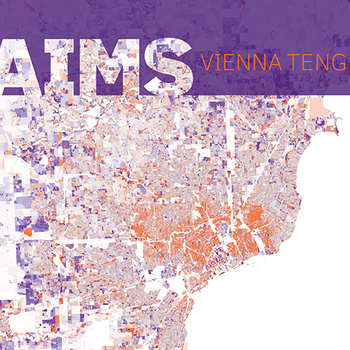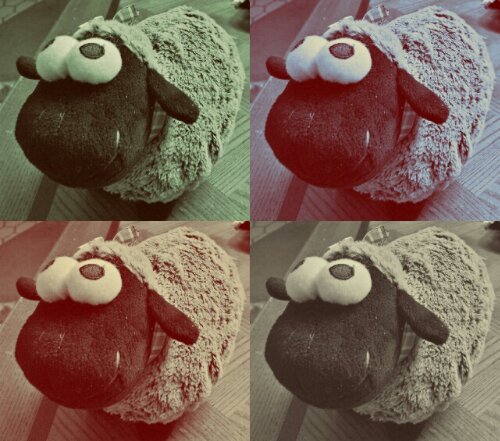
So, um, I can’t really think of anything to write about today, not anything I can do justice to in the free time I have before midnight. So, please enjoy this artistic shot of a toy sheep that was sitting on the table. (His name is, of course, Shaun.)
Tag: NaBloPoMo
Duct Tape, Foil and Cardboard
Last night I had to do some late-night laundry, and when I went in to move clothes from the washer to the dryer, I noticed water on the floor. My first thought: Great, the washing machine’s busted. On opening it, though, it looked like it had at least drained fine. So I checked the closet for the water heater.
Bingo: A fine jet of water spraying out the side of one of the pipes.
So I got out some duct tape, figuring it could block the leak for a few hours, and notified the landlord so he could call a plumber.
It was dripping again by the time I finished writing the text. Maybe it would have worked if I’d been able to shut off the water to that pipe before putting the tape on, but my plumbing expertise is…rather limited. I didn’t want to mess things up any more than I had to.
But I did know that you don’t want water puddling on your floor, even if it’s a concrete laundry room floor, so I put a container down to catch the drips (now that it was only drips). It was full by the time I came back for the clothes.
Then I noticed the wall vent near the damaged pipe. There was a small hole in the screen to allow an overflow pipe to run outside, and it was a few inches below the bottom of the pipe that the hot water was trickling down.
Lightbulb moment: Cut a Pringles can in half and make a trough to channel the water out through the vent and into the planter outside.
Problem: I don’t think I’ve bought a can of Pringles in over a decade.
Solution: A paper towel roll lined with foil.
I actually ended up using several toilet paper rolls taped together end to end, but it worked: The spit-and-baling-wire contraption diverted the water outside, keeping it from flooding any worse until the plumber arrived.
Yeah, it’s best to fix something right. But sometimes you need to patch it now and fix it right later.
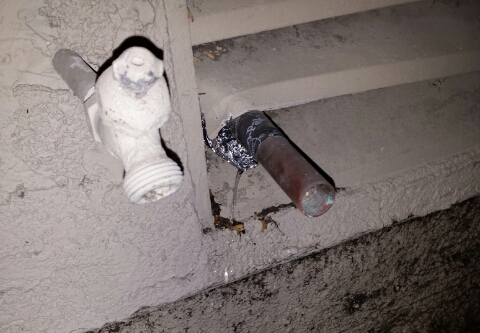
Mobile: Design for Offline
I’ve written about the trouble with using mobile apps in dead zones before, so I’m happy to see that I’m not the only one thinking about the problem. Hoodie wants to design for offline first, and is starting a discussion project around the issue.
Offline reading is an obvious application. Most eBook readers handle that just fine, though it’s easy because you spend a lot of time in each book so it doesn’t need to predict what you’ll read next. It would be great if Feedly would sync new articles for offline reading. Heck, I’d like it if Chrome on Android would let me re-open recent pages when the connection dies.
Beyond reading, many actions can be handled offline too. Kindle will sync your notes and highlights. GMail will let you read, write, label, archive, delete, and even send messages without a network connection. All your actions are queued up for the next sync.
There’s no reason this approach can’t be taken with other communications apps for messages that don’t require an immediate response, even with services like Facebook and Twitter. Short notes of the “don’t forget to pick up milk” variety. Observations. Uploads to Dropbox. Photos going to Instagram or Flickr. Buffer would be perfect for this, since you’re not expecting the post to go out immediately in the first place. It shouldn’t give you an “Unable to buffer” error, it should just save it for later.
I’d like to be able to do work in a place where there’s no connection, have that work persist, and fire things off as I finish them instead of having to come back to all of them the next time I’m within range of a cell tower or a coffee shop with wifi. I’d also like to be able to post in the moment, hit “Send,” and move on with my life, instead of having to hang onto that extra context in my mind as I walk around.
WonderCon Staying in Anaheim for 2014, Long Beach Comic-Con Next Week
 WonderCon has officially announced that they’re returning to Anaheim in 2014 for a third year, from April 18-20. It’s turned out to be a good venue for the convention, especially if they can work the remaining kinks out of parking next year, and it means it’s easy for us to attend, since it’s close enough for us to commute. (That really takes some of the pressure off of trying to get tickets for San Diego, too.)
WonderCon has officially announced that they’re returning to Anaheim in 2014 for a third year, from April 18-20. It’s turned out to be a good venue for the convention, especially if they can work the remaining kinks out of parking next year, and it means it’s easy for us to attend, since it’s close enough for us to commute. (That really takes some of the pressure off of trying to get tickets for San Diego, too.)
Still, I hope they find a way to move back to the Bay Area soon. I attended three years at the Moscone Center when it meant traveling (it probably helps that we have family and friends in the area to visit on the way up and back), and while the show still feels very much like part of the same family, it does feel like a slightly different show. I was in San Francisco on a business trip last week, and when I realized I was in the neighborhood, I just had to stop by Yerba Buena park and the Moscone Center for old time’s sake. Continue reading
Somebody Hears You
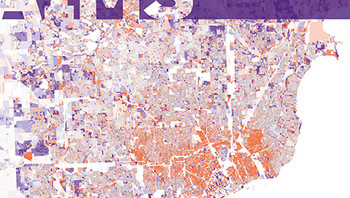
Every time I listen to Vienna Teng’s song, “The Hymn of Acxiom,” it gets creepier. It’s beautiful, it’s haunting…and it’s all about how big data is keeping track of every trace we leave, piecing together a more and more detailed picture of each of us in order to feed us back the perfect, tailored life, and isn’t that what we wanted?
Tracking. Privacy. Social media. Filter bubbles.
And I always think, “I need to post something about this on Facebook…”
And that just creeps me out more.
Hotels and the Illusion of Simplicity
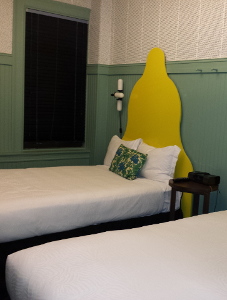 Maneuvering around toys on the living room after four days by myself in a hotel got me thinking about clutter. Traveling forces you to pare down your belongings for the duration of the trip. What fits in the suitcase. What’s easy to pack up again (if you’re going to more than one place). But it’s really an illusion enabled by two things:
Maneuvering around toys on the living room after four days by myself in a hotel got me thinking about clutter. Traveling forces you to pare down your belongings for the duration of the trip. What fits in the suitcase. What’s easy to pack up again (if you’re going to more than one place). But it’s really an illusion enabled by two things:
- At the end of the trip, you go back to your life. Anything you leave behind is merely deferred, not eliminated. Which is good, because even if you have extra stuff, you probably don’t want to be reduced all the way to a suitcase for real.
- The travel economy enables you to skip a lot of things that you’d otherwise need supplies (and time) for: cooking, cleaning, repairs, etc.
Yeah, it feels like you’re simplifying your living situation for a few days…but that’s because you’re paying for someone else to do all the maintenance work.
Airplane, leaving me to my own devices
I started writing this on an airplane about to take off. In the time between my outbound flight and return trip, United took advantage of new FCC rules to draft a new policy allowing passengers to continue using (if I can remember the phrasing) “lightweight personal electronic devices set in non-transmit mode.”
I did have to stop as a matter of practicality during the takeoff itself, and being in a window seat I spent a lot of the next few minutes staring out the window.
Something I found interesting on the way up is how similar open space and water look at night from far enough up when you’re near a city, especially if the city just stops…especially at a natural boundary like a range of hills. In both cases you have a brightly lit region next to completely dark area. It’s only when you can identify patterns like docks, or roads through the empty space, or occasional lighted areas (though they could be boats) that you can really tell.
If you’re low enough, you can sometimes see the reflections of lights in the water. That made for an interesting illusion on the flight in. I’m not sure which bridge it was across the San Francisco bay, but it’s lit by regularly spaced white lights underneath the roadway. For some reason it looked like the lights were moving along the bridge as I flew past it, like the pulses in a Mac progress bar.
Something else that struck me: most areas along the California coast, seen at night, appear as darkness with islands of light. Greater Los Angeles is light with islands of darkness.
No wonder I can hardly see any stars these days.
